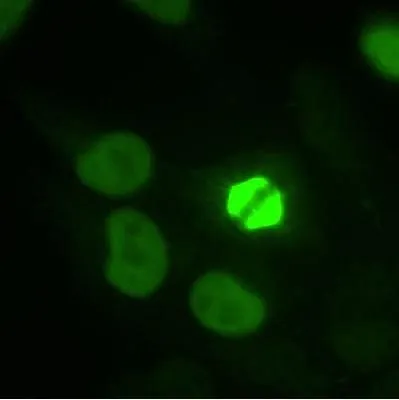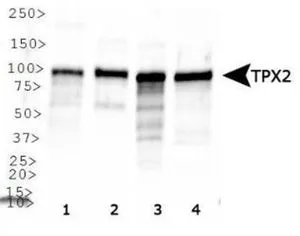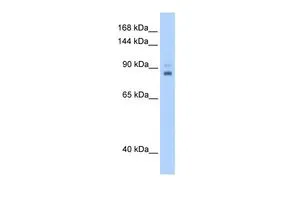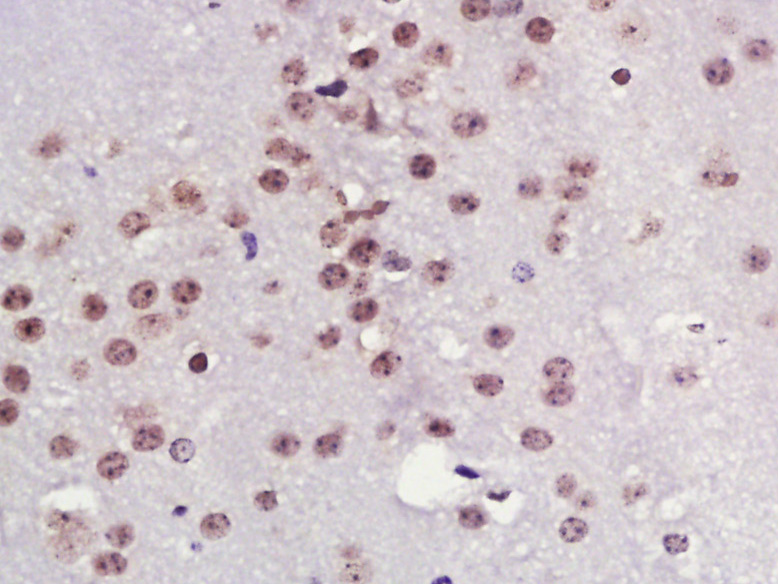
ICC/IF analysis of HeLa cells using GTX30690 TPX2 antibody. Nuclear staining during interphase and spindle staining during mitosis. Dilution : 1:1000 Fixation : 3.5% PFA
TPX2 antibody
GTX30690
ApplicationsFlow Cytometry, ImmunoFluorescence, ImmunoPrecipitation, Western Blot, ImmunoCytoChemistry
Product group Antibodies
ReactivityHuman, Mouse, Porcine, Rat
TargetTPX2
Overview
- SupplierGeneTex
- Product NameTPX2 antibody
- Delivery Days Customer9
- Application Supplier NoteWB: 1:1000. ICC/IF: 1:1000. IP: 1:10 - 1:100. *Optimal dilutions/concentrations should be determined by the researcher.Not tested in other applications.
- ApplicationsFlow Cytometry, ImmunoFluorescence, ImmunoPrecipitation, Western Blot, ImmunoCytoChemistry
- CertificationResearch Use Only
- ClonalityPolyclonal
- ConjugateUnconjugated
- Gene ID22974
- Target nameTPX2
- Target descriptionTPX2 microtubule nucleation factor
- Target synonymsC20orf1, C20orf2, DIL-2, DIL2, FLS353, GD:C20orf1, HCA519, HCTP4, REPP86, p100, targeting protein for Xklp2, TPX2, microtubule-associated protein homolog, TPX2, microtubule-associated, homolog, differentially expressed in cancerous and non-cancerous lung cells 2, differentially expressed in cancerous and noncancerous lung cells 2, differentially expressed in lung cells, hepatocellular carcinoma-associated antigen 519, hepatocellular carcinoma-associated antigen 90, preferentially expressed in colorectal cancer, protein fls353, restricted expression proliferation associated protein 100
- HostRabbit
- IsotypeIgG
- Protein IDQ9ULW0
- Protein NameTargeting protein for Xklp2
- ReactivityHuman, Mouse, Porcine, Rat
- Storage Instruction-20°C or -80°C,2°C to 8°C
- UNSPSC12352203
References
- Park JE, Jang YL, Jang CY. The tobacco carcinogen NNK disturbs mitotic chromosome alignment by interrupting p53 targeting to the centrosome. Toxicol Lett. 2017,281:110-118. doi: 10.1016/j.toxlet.2017.09.019Read this paper







